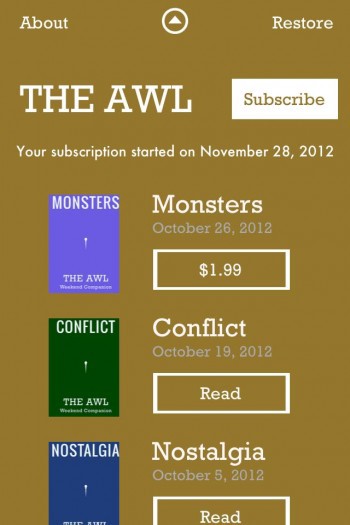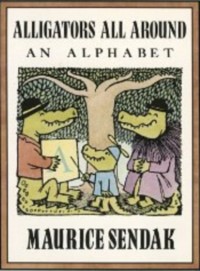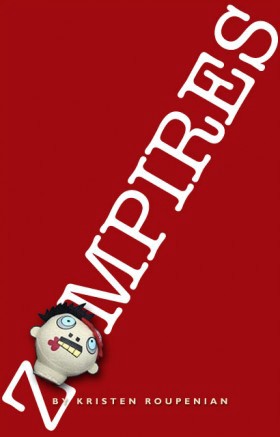New York City, November 27, 2012

★ Tedious and just short of loathsome. Vague promises of snow produced instead a cold, needly rain, with a few flakes blown in for not-very-interesting contrast. Discarded things stuck to the wet pavement in the evening: kinked twine, plastic sheeting, a crumpled something that was either an elbow-length glove or an unwanted umbrella sheath. At bedtime, the kindergartener clambered up and over and through the headboard and footboard of the big bed. Recess time, he said, had been spent indoors, watching a movie.
Is Your Smart Phone's Tin Case Destroying the Entire Earth?

The iPhone and the Samsung phone (sPhone?) are very good technological devices primarily because they have shiny metal on the backside, underneath the plastic case you bought to protect the shiny metal from smudges or scratches. But is the mining of this metal destroying a beautiful Eden-like Indonesian island? Probably! Friends of the Earth did a six-month-long investigation (PDF) of the Appalachian-style tin mining operations on Bangka Island, where a massive industrial operation is “destroying forests, farmland and coral reefs, injuring miners and driving away fish and marine life.” All so you can put an “Otterbox” over the shiny metal!
Apple and Samsung “neither confirmed nor denied this,” according to the meddling environmental group. So … feel vaguely guilty about your tin smart phone, we guess? On the next Black Friday, maybe you can buy a smart phone made completely of organic garbage.
Moon Even Useless For Insanity-Inducement
It turns out the full moon does not actually make people crazy, which is not the same as saying that it doesn’t suck, because it does. It sucks so bad. Fuck the moon.
Please Welcome "The Awl's Weekend Companion," for iPad and iPhone

There’s a whole bunch of ways to read now, and we’d like you to indulge in all of them, as you wish, even in the ways that don’t particularly help us publish writing. One thing we’ve often heard from folks is that they would like a quiet thing to sit down with for reading — away from the laptop and the desktop, away from the IMs and Twitter and email and noise.
With the help of 29th Street Publishing, we’ve made The Weekend Companion. It’s a weekly Awl magazine, and it comes out every Friday, for iPhone and iPad, through Apple’s Newsstand. Each issue has just five or so substantial things to read from the week. And a wee intro, and that’s it. Unlike lots of the web, it’s pretty, deluxe, fun and it’s also easy. Plus, the great joy of a web magazine is that it comes to you.

We’d love it most of all if you checked it out and actually wanted to subscribe for a month or for a year. It costs all of $4 a month. (There’s another free month if you share your info with us, too!) But you can also download it for free and check out three free recent issues. And if you wish, you can buy issues one by one. So go on.
While you do that, we wanted to talk a little bit, should you be interested, about this in a more meta sense.
Apps aren’t for everyone. (Haha, obviously.) We want this to serve a group of readers for whom this is ideal. They — you?! — would like to support writing and publishing, and also enjoy a particular kind of reading, reading that’s a little more luxurious in format and in manner.
Also they must own iPads or iPhones, right? What was that Marx said about “the means of consumption”? (What’s that you say?)
Anyway. Right now, much of the way the web is made, particularly at places designed for reading, is becoming a bit more “app-like,” as we think of that now. That’ll increase, and it’s good. Overall, things are getting less ugly! Even our famously unattractive website will be heading that direction… somewhat.
And at the same time, app-making is becoming more democratic. 29th Street’s goal is that selling subscriptions on iTunes should be “as simple as blogging.” Perhaps you remember when blogging was not so simple! It only became so because people built tools that made it so.
Right now apps are currently way out of vogue. People like, spit on the ground when someone says “apps.” (I mean, pretty literally, I saw some web publishers do this at a panel recently.) And for good reason! A bunch of big companies went crazy about apps, and spent a lot of money making them. They did not, many of us were un-shocked to find, get a “return on their investment.” They were doing it wrong. And they probably shouldn’t have done it in the first place! Or they should have, but for fun!
Democratizing app production, however, makes apps scale. And also subscription products — whether it’s an app, or newsletters and emails, or books, or physical objects — help small business and independent purveyors succeed. So now a smart company has built the infrastructure as a product for companies without that big expensive backbone, thereby eliminating the need for insane burn rates, fleets of designers and catered conference room lunches. (Who is going to democratize catered conference room lunches? That is what we are waiting for.)
Recently I visited with a publisher of a pay reading product. He was acting mock-furious with us — though he clearly really disagreed with our choices — for “giving things away for free on the web.” It was kind of funny but it was also so alien to me. (He also had a much nicer office than our sad/adorable little hobbit-hole.) We want people to be able to read things for free! On one very real level, if every reading product cost money, well, many of us wouldn’t get to do very much reading then, would we? And from our point of view, I didn’t understand really why he was holding all that writing hostage.
And yes, “reading for free” serves the advertising model, which is usually going to be imperfect. We — along with everyone else! — have not solved the problem of the finances of writing online. (Though the ways that advertising works online in general are, in many ways, drastically improving. For instance, some brands whose goal used to be “make banners that people will click on” now sometimes have the goal of “getting credit for being the underwriter of great editorial content.”)
It’s incredibly important right now for publishers whose income largely derives from advertising to, well, we hate to use a business school word like “diversify,” but, yeah: diversify. At the same time, subscription products give readers a chance to be, essentially, members. (This is referred to, usually derisively, as “the NPR totebag business model.”) Of course we’d love it if you wanted to join up. Maybe we can invent a secret handshake or something. And if not, that’s cool too. We think people reading for free on the web are absolutely just as valuable as those who want to pay a wee bit of money for reading in a very handsome iPad app. You do you. We can dig it.
The Atlantic Successfully Trolls All Women, Forever
So the n+1 editors know about Sandra Tsing Loh, right?
The English Language's 26 Most Important Letters

The English alphabet has ever been the center of the American literary universe — the letters of Whitman, of Edith Wharton, of every poorly-spelled happy hour chalkboard in Greenwich Village — and though the legendary set of graphemes has lost a little edge and a lot of grime what with all the crazy texting the kids do today, it is still creative fodder for countless contemporary writers, even the ones who have figured out that if you do graphic novels you have to write like 75% less.
As you may have heard, one of the alphabet’s most legendary letters, Q, recently announced that since he was only appreciated in Scrabble and when the New York Times wanted to seem authentic in converting a word from Arabic, he was retiring, which has left us thinking about the state of the symbols — and where they might go from here. To that end, we’ve taken a look at some of the alphabet’s most important letters. In making our list, we’ve chosen symbols with serious orthographic merit, taking into consideration their legacy, their publishing history, and their cultural relevance across the board to compile a definitive ranking of their value. Find our ranked list after the jump, and get to quibbling (as we know you will) in the comments.
26. Z
25. Y
24. X
23. W
22. V
21. U
20. T
19. S
18. R
17. Q
16. P
15. O
14. N
13. M
12. L
11. K
10. J
9. I
8. H
7. G
6. F
5. E
4. D
3. B
2. C
1. A
You Spend Because You Suck
“People who are sad are more likely to seek instant financial gratification, even though it means losing out on more money later if they had just waited.”
My Extremely Dead Zombie-Vampire Novel
My Extremely Dead Zombie-Vampire Novel
by Kristen Roupenian

As National Novel Writing Month enters its final days, the next in our series about the novels that we started writing but, for whatever reason, never finished.
Sometime in 2006, I was lying in bed, kind of drunk and thinking about zombies, and I had a thought. In a world (the voiceover in my head went) in which both vampires and zombies existed, who would be forced to be humanity’s friend? Vampires, because if all the people turned into zombies, the vampires would have nothing to eat. But in a world where both vampires and zombies existed, what’s the worst thing that could happen? No, not vambies, dummy… ZOMPIRES.
Holy moses. I had just made myself a million dollars.
Early 2006 was post-28 Days Later, post-Dawn of the Dead remake, post Shaun of the Dead, but it was still pre-World War Z, pre-Zombieland, pre-Walking Dead. Zombies were swarming the pop cultural landscape, but the world was not yet apocalyptically overrun. This was also after the first Twilight book had been released but before the series went mainstream: for most of us, vampires were in a kind of post-Buffy, pre-Bella lull.
The next day, sober, I still liked the idea. For the next few months, all I could talk about was how I was going to write a novel called Zompires. It was an immediate ice-breaker at parties, a prompt for discussion every time a conversation dragged. I told my mom about Zompires, my friends about Zompires, all my crushes about Zompires. On my Facebook profile, under interests, I listed “Zompires.” Everyone was into it. Zompires! “Be careful spreading that around,” a friend said. “You don’t want someone stealing your idea.” It would have been a pretty simple idea to steal, too, since it was entirely contained in that single word. Still, it was my idea. Mine. This may be hard to believe, but when I Googled “zompire” around this time, only six entries came up. Six. On the entire internet. The word, and the world, were mine for the taking.
This made a nice change. Not long before, I’d returned home from two years in Kenya with the Peace Corps. I was working as a nanny while I struggled to write sensitive, heartrending pieces about Africans living in poverty, and it was not working out. I came home exhausted every evening (the fact that I had usually been drinking until 3 am the night before didn’t help) and sat in front of the computer, struggling to add a word or two to stories I’d been hacking away at for months. I wrote a line or two a night, at best. Usually, I spent most of my time deleting. Not only was everything I put down on paper terrible and false, but the stories themselves, and the process of writing them, bored the everloving shit out of me.
My soon-to-be novel Zompires, on the other hand, was not boring. It was endlessly fascinating. Before I put a word down on paper, I was writing it in my head. As I made macaroni and cheese for the kids, I’d zone out and imagine what if a zombie came in here right now, and bam, like magic, the first scene spooled itself out in front of me. After a week of daydreaming, I had my heroine: a 14-year-old babysitter struggling to protect her charge in a zombie-infested world; my hero, a twenty-something slacker who survived the initial wave of the apocalypse by hiding in his basement and eating food he’d stockpiled from Costco, and the villain/anti-heroine, a badass, zombie-killing vampire who takes the two of them under her wing and shepherds them to a vampire-run “safety point,” where humans would be safe from zombies, but forced to serve as a food source for their fascistic vampire overlords. I also had an ending, in which the dark attraction between the hero and the villain would result in her attempting, foolishly, to rescue him from a zombie bite by turning him into a vampire, thus creating the first nightmarish ZOMPIRE. Exactly how zompires would differ from vampires and zombies, and how one might go about fighting them, was a problem to be taken up in the sequel.
Once I had the basic plot in mind, I sat down to write the first scene. It was fun! It was really, really fun. Since I hadn’t any fun writing since I first began to think of myself as a “writer” back in tenth grade, this was a revelation. All I cared about was the feeling of getting words on paper. Every time I started to worry, “Is this good? Does this make sense?” I told myself to shut up and keep going, because this was a zombie novel, so who cared if it was good? If I got bored with a scene, I ended it, because zombie novels weren’t supposed to be boring, they were supposed to be fun. I included no character development, no humor, no filler, no flashbacks, just scene after scene after scene of people getting fucked up by zombies.
Despite my determination to write the fastest-moving, least-boring zombie book ever, I was still incredibly slow writer. It seems to me, looking back, that I spend hundreds of hours working on Zompires, and maybe I did, but I produced maybe fifty single-spaced pages in total. I also had absolutely no discipline about it. Having fun was supposed to be the cure for my writer’s block, so I only worked on Zompires when I felt like it, most often as a form of procrastination when I was supposed to be doing something else.
I quit my nannying job and got a cushy job in an office. It was the kind of job where I could have gotten away with devoting most of my day to Zompires. Instead, I told all of my co-workers about Zompires and then, that accomplished, spent my free time reading the internet and applying to grad school. Once I started school, I told all of my fellow students about Zompires and then left the manuscript untouched for more than year. Mostly, I enjoyed what I smugly felt was the cognitive dissonance of being a PhD candidate in English who was working on a zombie novel. Occasionally, when I was feeling particular anxiety-ridden about grad school, I would skip whatever it was I was supposed to be doing and work on Zompires, imagining that publishing the book would rescue me from academia in time to keep me from failing my fields exams.
As the years went by, and the novel remained unfinished, I stopped telling the Zompire story at parties. Zombies were not only everywhere, they belonged to everyone. People were writing smart, ironic zombie novels like World War Z, smart, serious zombie novels like Zone One, semi-smart, silly zombie novels like Pride and Prejudice and Zombies. The slacker bartender character’s unfinished zombie novel has since become a running joke on “The New Girl,” a gag that still stings me a little every time I hear it. Meanwhile,Twilight took over and the fact that my book had a vampire in it started to seem way less cool and a lot more embarrassing.
When I sat down to write, which occurred more and more rarely, I could hear all of these other zombies and vampires rustling around in my head, and they made me feel imitative and dull. I looked over the pages I had written so far and realized that, you know what? Novels — even zombie novels — actually do need the “boring parts,” or they seem eerily gap-filled and empty. Absent those scenes, Zompires wasn’t a book, not even a bad book. I went back and tried to shoehorn in some character development, but then I lost the draft in which I’d done that work, and, unwilling or unable to recreate it, I was left with a manuscript that now seemed irredeemably hollow and stupid to me.
Meanwhile, the number of Google hits for Zompire climbed into the hundreds, thousands, tens of thousands. At some point, I realized that I was never going to finish Zompires, and I moved on to other fiction projects, all of which also remained incomplete. The pattern inaugurated with Zompires, in which I start a book with great enthusiasm, barrel forward and a write a bunch of joyful, free-flowing pages before a mixture of boredom, self-consciousness and the desire to write something else sets in, has repeated itself, oh, at least a dozen times since then. I was 25 when I first conceived of Zompires. I’m 31 now. I have written unfinished romance novels, unfinished mystery novels, unfinished thrillers, unfinished short-story cycles, unfinished memoirs, and unfinished fan fiction (seriously). I’m still working on one unfinished dissertation.
I don’t regret the time I spent writing Zompires, or any of those other unfinished manuscripts. It’s hard to say for sure since I’m the only one who reads it, but I think my fiction has gotten better as I cruise towards those 10,000 hours, or however much practice-time Malcolm Gladwell says you need to put in before you become actually good at something. Certainly, the practice of writing has gotten easier: where I once spent hours self-consciously agonizing over every miserable word, writing has now become a kind of pleasant fugue state in which, if I’m not careful, I can spend six hours in front of my laptop, forgetting to pee or to eat. That’s got to be a good thing, right? My most recent unfinished novel, a noir-ish thriller set in Kenya, where I did my Peace Corps service all those years ago, is at 50,000 words and counting. Part of me thinks I might even finish it, although past experience has taught me not to be too optimistic.
At the same time, my reason for giving up on Zompires — that it sucked — now seems heartbreakingly stupid. So what if it sucked? Most zombie books suck. Most books suck. Seriously, go to the library sometime and take a random title off the new books shelf. Odds are, it sucks. Nonetheless, the person who wrote it is a published writer, and I am not. Maybe if I’d finished Zompires and gone back and edited it a little, I would be. There’s not really much more to it than that.
In preparation for writing this essay, I Googled “Zompire” for the first time in a while, and discovered that what I’d been waiting for had finally happened: someone had taken the Zompire concept and made something of it. There were probably hundreds of people kicking around that same idea at about the same time as I was, but none of us did anything about it until — if I’m reading this webpage correctly — 2011. In that year, zompires entered the world of published fiction via the Buffy the Vampire Slayer comic book series Freefall, in which Buffy and Xander have the following exchange:
Buffy: “Everyone who’s turned since the Seed was destroyed is a zombie vampire.”
Xander: “Zompires! I’ve named them. My work is done here.”
That’s what I thought, too, Xander! That’s what I thought, too.
Previously in series: An Unexpected Masterpiece
Kristen Roupenian is a writer whose work has appeared on The Hairpin and elsewhere. Zombie head featured on cover comes with your Dismember-Me Plush Zombie.
Review Touching
I have a hard time recalling any book review that made me cry, but this sure did the trick. Not recommended for work if you’re in an open plan office, but do print and save it for a private moment.
